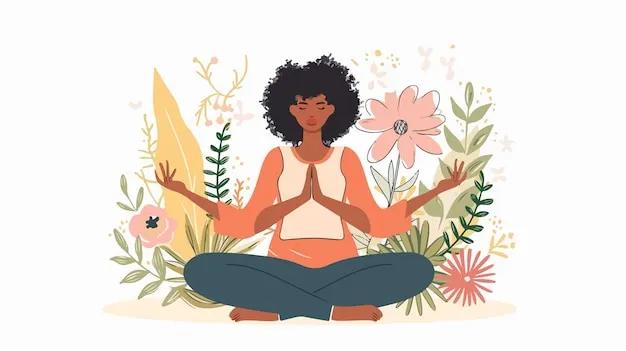In our fast-paced world, stress and anxiety have become common experiences. However, mindfulness meditation offers a powerful tool to manage these feelings and promote overall well-being.
What Is Mindfulness Meditation?
Mindfulness meditation is the practice of focusing your attention on the present moment without judgment. It involves observing your thoughts, feelings, and bodily sensations with awareness and acceptance. This practice helps you become more attuned to your inner experiences and can lead to greater emotional balance.
How Mindfulness Meditation Reduces Stress and Anxiety
- Calms the Nervous System
Mindfulness meditation activates the parasympathetic nervous system, which counteracts the body’s stress response. This leads to reduced heart rate, lower blood pressure, and a sense of relaxation. - Enhances Emotional Regulation
Regular practice improves your ability to regulate emotions by increasing awareness of your emotional states and reducing reactivity to stressors. - Improves Focus and Clarity
Mindfulness meditation trains your mind to stay focused on the present moment, which can enhance concentration and mental clarity.
Benefits of Mindfulness Meditation
- Reduced Anxiety: Studies have shown that mindfulness meditation can decrease symptoms of anxiety disorders.
- Improved Sleep Quality: Regular practice can lead to better sleep by promoting relaxation and reducing stress.
- Enhanced Resilience: Mindfulness meditation helps build resilience by improving emotional regulation and coping skills.
How to Practice Mindfulness Meditation
- Find a Quiet Space: Choose a comfortable and quiet place where you won’t be disturbed.
- Sit Comfortably: Sit in a relaxed but upright posture.
- Focus on Your Breath: Pay attention to the sensation of your breath entering and leaving your body.
- Observe Your Thoughts: Notice any thoughts that arise without judgment, and gently bring your focus back to your breath.
- Start Small: Begin with 5–10 minutes daily and gradually increase the duration as you become more comfortable.
Conclusion
Incorporating mindfulness meditation into your daily routine can be a transformative practice for managing stress and anxiety. By cultivating awareness and presence, you can enhance your emotional well-being and navigate life’s challenges with greater ease.



